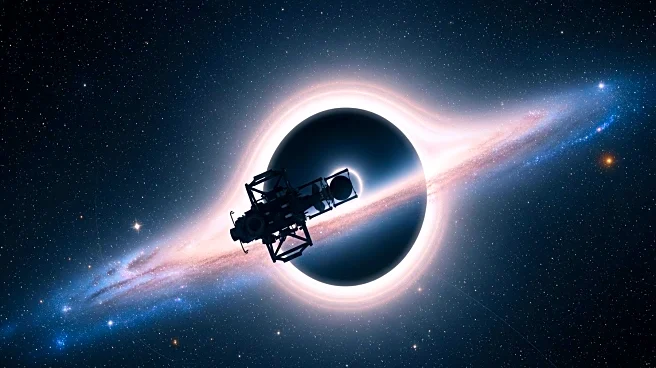What's Happening?
Astronomers using NASA's James Webb Space Telescope have identified mysterious 'black hole stars' in the early universe. These objects, dubbed 'universe breakers,' appear to be massive spheres of hot gas powered by supermassive black holes. The discovery challenges existing models of galaxy formation, suggesting these objects could be mature galaxies or entirely new phenomena. The findings were published in the journal Astronomy & Astrophysics, with contributions from an international team of scientists, including those from Penn State. The telescope's infrared-sensing instruments allow scientists to observe the universe as it was 13.5 billion years ago, near its inception.
Why It's Important?
The discovery of 'black hole stars' could provide crucial insights into the formation and evolution of supermassive black holes in the early universe. These objects may represent a missing link in understanding how such massive black holes developed so rapidly after the Big Bang. The findings could lead to revisions in current models of galaxy formation and evolution, impacting our understanding of cosmic history. This research underscores the capabilities of the James Webb Space Telescope in uncovering new astronomical phenomena and advancing our knowledge of the universe's origins.
What's Next?
The research team plans to further investigate these 'black hole stars' by examining their density and the strength of their gravitational pull. Future studies will aim to confirm the hypothesis that these objects are powered by supermassive black holes and explore their role in the early universe's evolution. The findings may prompt astronomers to revisit existing theories and models of galaxy formation, potentially leading to new discoveries about the universe's infancy.
Beyond the Headlines
The discovery raises questions about the processes that lead to the formation of supermassive black holes and their influence on surrounding matter. It challenges the conventional understanding of star formation and galaxy development, suggesting that extraordinary processes may have occurred in the universe's early stages. This could have implications for the study of black holes and their interactions with other cosmic entities.










